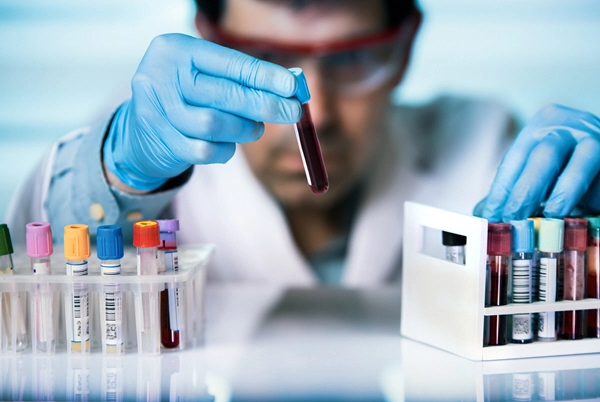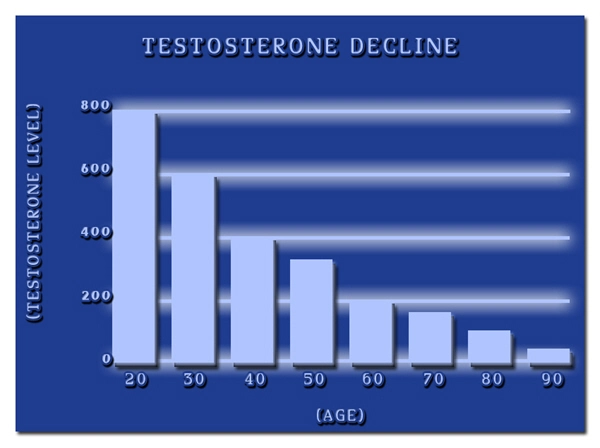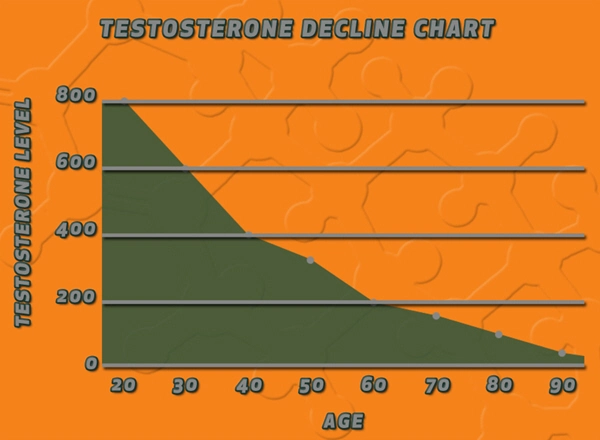Introduction
Traumatic brain injury (TBI) remains a significant public health concern in the United States, affecting millions of individuals annually. The consequences of TBI can be devastating, ranging from cognitive impairments to long-term neurological deficits. Recent research has begun to explore the potential neuroprotective effects of various compounds, with testosterone cypionate emerging as a promising candidate. This article delves into the potential benefits of testosterone cypionate in American males with traumatic brain injury, highlighting its neuroprotective properties and the implications for clinical practice.
Understanding Traumatic Brain Injury
Traumatic brain injury is a complex condition resulting from a violent blow or jolt to the head, or from an object penetrating the brain tissue. In the United States, TBI is a leading cause of death and disability, particularly among young adults and males. The severity of TBI can vary, with mild cases often resolving within weeks, while severe cases can lead to permanent disability. The pathophysiology of TBI involves a primary injury at the time of impact, followed by a secondary injury cascade that can exacerbate damage.
The Role of Testosterone in Neuroprotection
Testosterone, a primary male sex hormone, has been shown to have various effects on the brain, including neuroprotection. Testosterone cypionate, a long-acting ester of testosterone, has been used clinically for hormone replacement therapy. Recent studies suggest that testosterone may play a crucial role in mitigating the effects of TBI by reducing inflammation, promoting neuronal survival, and enhancing cognitive function.
Mechanisms of Neuroprotection
The neuroprotective effects of testosterone cypionate in TBI are multifaceted. One key mechanism involves the reduction of oxidative stress and inflammation, which are critical components of the secondary injury cascade following TBI. Testosterone has been shown to modulate the expression of inflammatory cytokines, thereby reducing the inflammatory response. Additionally, testosterone can enhance the production of neurotrophic factors, such as brain-derived neurotrophic factor (BDNF), which supports neuronal survival and plasticity.
Clinical Evidence and Studies
Several preclinical studies have demonstrated the potential benefits of testosterone cypionate in animal models of TBI. For instance, research has shown that testosterone administration post-injury can improve cognitive outcomes and reduce lesion size. While human studies are limited, preliminary data suggest that testosterone supplementation may improve recovery and cognitive function in males with TBI. A notable study conducted on American male veterans with TBI found that those receiving testosterone therapy exhibited better cognitive performance and reduced symptoms of depression compared to those who did not receive the therapy.
Implications for Clinical Practice
The potential neuroprotective effects of testosterone cypionate in American males with TBI have significant implications for clinical practice. If further research confirms these benefits, testosterone supplementation could become a standard component of TBI management, particularly in cases where hormonal imbalances are present. Clinicians should consider the potential benefits of testosterone therapy, alongside its risks and contraindications, when developing treatment plans for male patients with TBI.
Challenges and Future Directions
Despite the promising findings, several challenges remain in the integration of testosterone cypionate into TBI treatment protocols. The optimal dosing and timing of testosterone administration post-injury are still under investigation. Additionally, long-term studies are needed to assess the safety and efficacy of testosterone therapy in this population. Future research should focus on conducting large-scale clinical trials to validate the neuroprotective effects of testosterone cypionate in American males with TBI.
Conclusion
The exploration of testosterone cypionate as a neuroprotective agent in American males with traumatic brain injury represents a promising frontier in TBI research. By leveraging the hormone's ability to reduce inflammation, promote neuronal survival, and enhance cognitive function, testosterone therapy could offer new hope for improving outcomes in this vulnerable population. As research progresses, it is crucial to continue investigating the potential benefits and challenges of testosterone cypionate in TBI management, with the ultimate goal of enhancing the quality of life for those affected by this debilitating condition.

- Testosterone Cypionate: Managing Low Levels in Aging American Men [Last Updated On: January 11th, 2026] [Originally Added On: February 21st, 2025]
- Testosterone Cypionate: Managing Chronic Conditions in American Men [Last Updated On: March 17th, 2025] [Originally Added On: March 17th, 2025]
- Testosterone Cypionate Therapy: Insurance, Providers, and Lifestyle for Optimal Male Health [Last Updated On: March 17th, 2025] [Originally Added On: March 17th, 2025]
- Testosterone Cypionate's Impact on Sleep Patterns in American Males: A Comprehensive Analysis [Last Updated On: March 18th, 2025] [Originally Added On: March 18th, 2025]
- Testosterone Cypionate: Enhancing Mental Clarity in American Men - Experiences and Insights [Last Updated On: March 18th, 2025] [Originally Added On: March 18th, 2025]
- Testosterone Cypionate: Medical Uses and Social Stigma in American Males [Last Updated On: March 19th, 2025] [Originally Added On: March 19th, 2025]
- Mastering Testosterone Cypionate Injections: A Guide for American Males [Last Updated On: March 20th, 2025] [Originally Added On: March 20th, 2025]
- Testosterone Cypionate: Benefits, Risks, and Prostate Health Monitoring for American Men [Last Updated On: March 21st, 2025] [Originally Added On: March 21st, 2025]
- Testosterone Cypionate: A Potential Aid in Weight Management for American Men [Last Updated On: March 21st, 2025] [Originally Added On: March 21st, 2025]
- Testosterone Cypionate's Effects on Skin Health in American Men: Acne, Elasticity, Hair [Last Updated On: March 21st, 2025] [Originally Added On: March 21st, 2025]
- Testosterone Cypionate: Enhancing Libido in American Males - Benefits and Risks [Last Updated On: March 22nd, 2025] [Originally Added On: March 22nd, 2025]
- Testosterone Cypionate: Debunking Myths and Presenting Facts for American Men's Health [Last Updated On: March 22nd, 2025] [Originally Added On: March 22nd, 2025]
- Long-term Testosterone Cypionate Use: Impacts on American Men's Health [Last Updated On: March 22nd, 2025] [Originally Added On: March 22nd, 2025]
- Managing Testosterone Cypionate Side Effects: Strategies for American Men on TRT [Last Updated On: March 22nd, 2025] [Originally Added On: March 22nd, 2025]
- Testosterone Cypionate's Impact on Emotional Well-being in American Men [Last Updated On: March 22nd, 2025] [Originally Added On: March 22nd, 2025]
- Testosterone Cypionate Therapy: Costs, Coverage, and Cost-Saving Strategies for American Males [Last Updated On: March 22nd, 2025] [Originally Added On: March 22nd, 2025]
- Testosterone Cypionate: Enhancing Diabetes Management in American Males [Last Updated On: March 23rd, 2025] [Originally Added On: March 23rd, 2025]
- Testosterone Cypionate's Impact on Immune Function in American Males: Latest Research [Last Updated On: March 23rd, 2025] [Originally Added On: March 23rd, 2025]
- Testosterone Cypionate: A Vital Tool for Transgender American Males' Transition [Last Updated On: March 23rd, 2025] [Originally Added On: March 23rd, 2025]
- Testosterone Cypionate: Benefits, Risks, and Guidelines for Hypogonadism Treatment [Last Updated On: March 23rd, 2025] [Originally Added On: March 23rd, 2025]
- Testosterone Cypionate's Impact on Vision Health in American Males: Benefits and Risks [Last Updated On: March 24th, 2025] [Originally Added On: March 24th, 2025]
- Testosterone Cypionate's Impact on Kidney Function in American Men: A Comprehensive Review [Last Updated On: March 24th, 2025] [Originally Added On: March 24th, 2025]
- Testosterone Cypionate's Impact on Cholesterol Levels in American Men: Risks and Management [Last Updated On: March 24th, 2025] [Originally Added On: March 24th, 2025]
- Testosterone Cypionate's Impact on Liver Health in American Males: Risks and Management [Last Updated On: March 24th, 2025] [Originally Added On: March 24th, 2025]
- Testosterone Cypionate: A Promising Treatment for Depression in American Males [Last Updated On: March 24th, 2025] [Originally Added On: March 24th, 2025]
- Testosterone Cypionate's Impact on Digestive Health in American Men: A Comprehensive Review [Last Updated On: March 24th, 2025] [Originally Added On: March 24th, 2025]
- Testosterone Cypionate's Impact on Male Pattern Baldness in American Men: Mechanisms and Management [Last Updated On: March 24th, 2025] [Originally Added On: March 24th, 2025]
- Testosterone Cypionate: Monitoring Blood Levels for Safe, Effective Therapy in American Men [Last Updated On: March 25th, 2025] [Originally Added On: March 25th, 2025]
- Testosterone Cypionate's Impact on Blood Pressure in American Men: A Comprehensive Review [Last Updated On: March 25th, 2025] [Originally Added On: March 25th, 2025]
- Testosterone Cypionate's Impact on Hearing Health in American Men: An Emerging Link [Last Updated On: March 25th, 2025] [Originally Added On: March 25th, 2025]
- Testosterone Cypionate's Impact on Joint Health: Benefits and Risks for American Men [Last Updated On: March 25th, 2025] [Originally Added On: March 25th, 2025]
- Testosterone Cypionate: A Promising Treatment for Chronic Fatigue in American Males [Last Updated On: March 25th, 2025] [Originally Added On: March 25th, 2025]
- Testosterone Cypionate and Hair Loss: Mechanisms, Risks, and Management for American Men [Last Updated On: March 25th, 2025] [Originally Added On: March 25th, 2025]
- Testosterone Cypionate: Enhancing Cognitive Function in American Men with Low Testosterone [Last Updated On: March 25th, 2025] [Originally Added On: March 25th, 2025]
- Testosterone Cypionate: Balancing Benefits and Cardiovascular Risks in American Men [Last Updated On: March 25th, 2025] [Originally Added On: March 25th, 2025]
- Testosterone Cypionate's Impact on Red Blood Cell Production in American Men on TRT [Last Updated On: March 26th, 2025] [Originally Added On: March 26th, 2025]
- Testosterone Cypionate: Enhancing Injury Recovery in American Males [Last Updated On: March 26th, 2025] [Originally Added On: March 26th, 2025]
- Testosterone Cypionate: Legal Status and Prescription Guidelines for American Males [Last Updated On: March 27th, 2025] [Originally Added On: March 27th, 2025]
- Testosterone Cypionate: Enhancing Energy in American Men with Low Testosterone [Last Updated On: March 27th, 2025] [Originally Added On: March 27th, 2025]
- Testosterone Cypionate: Benefits, Risks, and Safe Usage for American Men [Last Updated On: March 27th, 2025] [Originally Added On: March 27th, 2025]
- Testosterone Cypionate's Impact on Mental Health in American Males: Benefits and Risks [Last Updated On: March 27th, 2025] [Originally Added On: March 27th, 2025]
- Testosterone Cypionate: Enhancing Muscle, Reducing Fat in American Men's Health [Last Updated On: March 27th, 2025] [Originally Added On: March 27th, 2025]
- Testosterone Cypionate's Impact on Neurological Health in American Men: A Comprehensive Review [Last Updated On: March 27th, 2025] [Originally Added On: March 27th, 2025]
- Testosterone Cypionate: A Novel Approach to Osteoporosis in American Males [Last Updated On: March 28th, 2025] [Originally Added On: March 28th, 2025]
- Testosterone Cypionate: A Promising Treatment for Allergies in American Males [Last Updated On: March 28th, 2025] [Originally Added On: March 28th, 2025]
- Testosterone Cypionate: A Promising Therapy for Autoimmune Disorders in American Men [Last Updated On: March 28th, 2025] [Originally Added On: March 28th, 2025]
- Testosterone Cypionate: Potential Benefits for Acne, Psoriasis, and Eczema in American Males [Last Updated On: March 29th, 2025] [Originally Added On: March 29th, 2025]
- Testosterone Cypionate's Impact on Lung Function in American Men: Recent Findings [Last Updated On: March 29th, 2025] [Originally Added On: March 29th, 2025]
- Testosterone Cypionate's Impact on Thyroid Function in American Males: A Comprehensive Analysis [Last Updated On: March 29th, 2025] [Originally Added On: March 29th, 2025]
- Testosterone Cypionate: A Novel Pain Management Strategy for American Males [Last Updated On: March 29th, 2025] [Originally Added On: March 29th, 2025]
- Testosterone Cypionate's Impact on Dental Health: Insights for American Men on TRT [Last Updated On: March 30th, 2025] [Originally Added On: March 30th, 2025]
- Testosterone Cypionate's Impact on Eye Health in American Men: A Comprehensive Review [Last Updated On: March 30th, 2025] [Originally Added On: March 30th, 2025]
- Testosterone Cypionate: Effects, Risks, and Management for American Men [Last Updated On: April 1st, 2025] [Originally Added On: April 1st, 2025]
- Testosterone Cypionate: A Promising Therapy for Respiratory Health in American Males [Last Updated On: April 2nd, 2025] [Originally Added On: April 2nd, 2025]
- Testosterone Cypionate: Impacts on Male Reproductive Health in American Males [Last Updated On: April 4th, 2025] [Originally Added On: April 4th, 2025]
- Testosterone Cypionate's Impact on Urinary Health in American Men: A Comprehensive Review [Last Updated On: April 5th, 2025] [Originally Added On: April 5th, 2025]
- Testosterone Cypionate: Managing Metabolic Disorders in American Males [Last Updated On: April 6th, 2025] [Originally Added On: April 6th, 2025]
- Testosterone Cypionate: Enhancing Musculoskeletal Health in American Males [Last Updated On: April 6th, 2025] [Originally Added On: April 6th, 2025]
- Testosterone Cypionate's Impact on Gastrointestinal Health in American Males: A Comprehensive Review [Last Updated On: April 7th, 2025] [Originally Added On: April 7th, 2025]
- Testosterone Cypionate's Cardiovascular Effects: Risks, Benefits, and Management Strategies [Last Updated On: April 7th, 2025] [Originally Added On: April 7th, 2025]
- Testosterone Cypionate's Impact on Immune System in American Men: Risks and Benefits [Last Updated On: April 9th, 2025] [Originally Added On: April 9th, 2025]
- Testosterone Cypionate's Impact on Skin Health in American Men: Effects and Management [Last Updated On: April 9th, 2025] [Originally Added On: April 9th, 2025]
- Testosterone Cypionate's Role in Treating Neurological Disorders in American Males [Last Updated On: April 10th, 2025] [Originally Added On: April 10th, 2025]
- Testosterone Cypionate: Effects on Genitourinary System in American Men [Last Updated On: April 10th, 2025] [Originally Added On: April 10th, 2025]
- Testosterone Cypionate's Impact on Respiratory Health in American Men: Benefits and Risks [Last Updated On: April 12th, 2025] [Originally Added On: April 12th, 2025]
- Testosterone Cypionate: Impacts on Muscle, Bone Health in American Males [Last Updated On: April 12th, 2025] [Originally Added On: April 12th, 2025]
- Testosterone Cypionate's Impact on Kidney Function: Risks and Management Strategies [Last Updated On: April 13th, 2025] [Originally Added On: April 13th, 2025]
- Testosterone Cypionate's Emerging Role in Treating Hematological Disorders in American Males [Last Updated On: April 13th, 2025] [Originally Added On: April 13th, 2025]
- Testosterone Cypionate: Managing Endocrine Disorders in American Males [Last Updated On: April 15th, 2025] [Originally Added On: April 15th, 2025]
- Testosterone Cypionate: Psychiatric Impacts on American Men's Mental Health [Last Updated On: April 15th, 2025] [Originally Added On: April 15th, 2025]
- Testosterone Cypionate: Exploring Its Use in Dermatology for American Males [Last Updated On: April 16th, 2025] [Originally Added On: April 16th, 2025]
- Testosterone Cypionate's Impact on Hemoglobin and Hematocrit in American Men [Last Updated On: April 17th, 2025] [Originally Added On: April 17th, 2025]
- Testosterone Cypionate: A Promising Therapy for Respiratory Disorders in American Males [Last Updated On: April 17th, 2025] [Originally Added On: April 17th, 2025]
- Testosterone Cypionate's Psychiatric Impact on American Men: Benefits and Risks [Last Updated On: April 18th, 2025] [Originally Added On: April 18th, 2025]
- Testosterone Cypionate's Impact on Gastrointestinal Health in American Men [Last Updated On: April 19th, 2025] [Originally Added On: April 19th, 2025]
- Testosterone Cypionate: Impacts on Male Endocrine System and Therapeutic Considerations [Last Updated On: April 19th, 2025] [Originally Added On: April 19th, 2025]
- Testosterone Cypionate's Neurological Impact on American Men: Benefits and Risks [Last Updated On: April 20th, 2025] [Originally Added On: April 20th, 2025]
- Testosterone Cypionate's Role in Managing Renal Disorders in American Males: Emerging Evidence [Last Updated On: April 20th, 2025] [Originally Added On: April 20th, 2025]
- Testosterone Cypionate: Effective Hypogonadism Treatment for American Men [Last Updated On: April 20th, 2025] [Originally Added On: April 20th, 2025]
- Testosterone Cypionate: Benefits, Risks, and Impact on American Male Health [Last Updated On: April 21st, 2025] [Originally Added On: April 21st, 2025]



List of USA state clinics - click a flag below for blood testing clinics.
Word Count: 635


















































